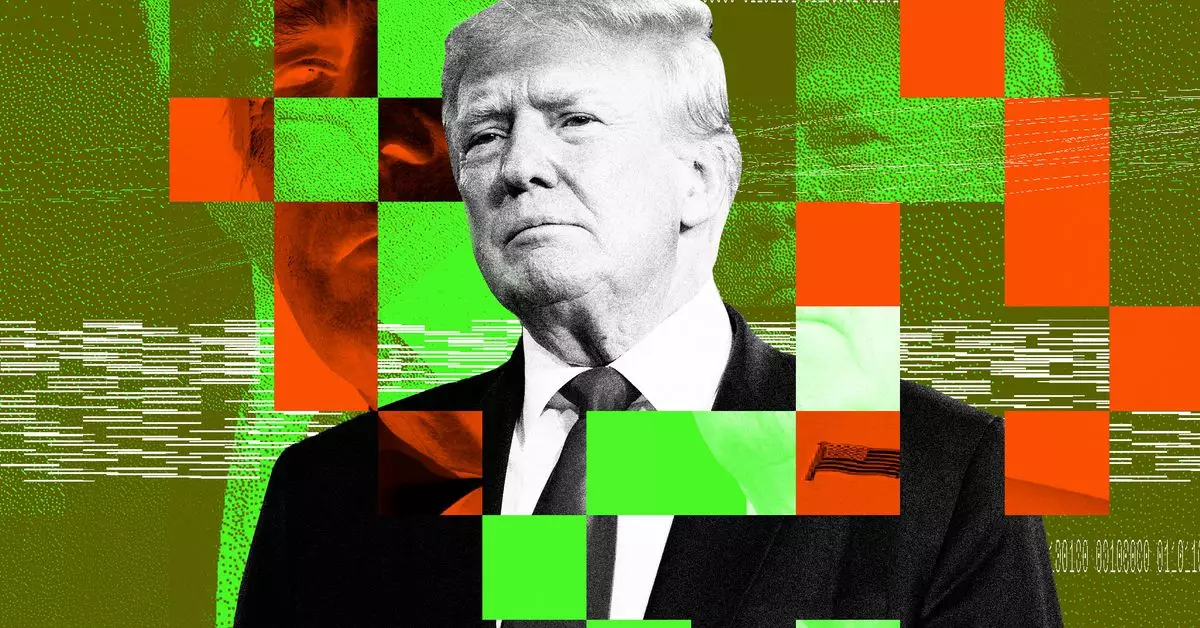World Liberty Financial has been introduced to the cryptocurrency landscape with a fanfare of promises primarily from the Trump circle, including Donald Trump himself and his sons. Their assertions herald the platform’s transformative potential—claimed to be a tool for liberating “the average American” from traditional financial systems dominated by banks and financial elites. On social media platforms like Truth Social, these proclamations paint a picture of a revolutionary service tailored for the unbanked and debanked populace. However, a critical look unveils a narrative filled with ambiguity and unanswered questions concerning the project’s actual purpose and functionality.
As of now, World Liberty Financial has opened its whitelists but has excluded a significant portion of the population from participation. The platform has started accepting sign-ups exclusively from U.S.-based accredited investors and non-U.S. persons. This exclusivity raises eyebrows, as it prompts an important inquiry: how can a project purport to assist the unbanked while simultaneously restricting access to these privileged investors?
Beyond the dull operational details, the platform’s underlying services remain nebulous. While World Liberty Financial has outlined a goal to drive “mass adoption of stable coins and decentralized finance,” specifics surrounding its functionality have been notably scarce. The distinction between operating as a service and merely marketing governance tokens remains unclear, leading to growing skepticism about its legitimacy.
Delving deeper into what has been disclosed, World Liberty Financial reportedly intends to introduce governance tokens branded as WLFI. The details surrounding the token distribution are concerning—initially, 70% of the tokens were earmarked for team members and affiliated parties, a fact that contradicts earlier claims suggesting a larger public share of tokens. This inconsistency reflects poorly on the trustworthiness of the communications emanating from the project’s advisers.
CoinDesk’s intelligence has connected World Liberty Financial to the dynamic and evolving Ethereum blockchain and Aave’s decentralized finance functionalities. However, the hype surrounding tokenomics has led to confusion rather than clarity. The assertion by the advisory team that “fake news media” has misconstrued facts denotes a resistance to transparency that could inhibit potential users from engaging with the platform seriously.
Regulatory Constraints and Their Implications
A significant part of this narrative revolves around regulatory frameworks that predicate participation based on individuals’ financial status. The inclusion of only accredited investors—those who meet stringent income and net worth criteria—exacerbates the distance from the very communities that the founders claim to champion. As defined by the SEC, these accredited investors constitute nearly 20% of U.S. households. Even though this figure sounds substantial, it starkly contrasts the needs of underbanked populations and raises the question of whether World Liberty Financial truly aims to democratize finance as they assert.
The reference to “outdated policies and regulations in the U.S.” suggests a friction point between innovative financial instruments and existing legal frameworks. However, blaming regulatory constraints does little to mitigate the criticism that the project may not effectively target the populations it claims to serve.
As World Liberty Financial moves forward, the sustainability and outreach of the platform remain in question. While the claims of creating a decentralized financial utopia are enticing, the current operational structure limits access and underscores the corporate elitism that the project ostensibly seeks to dismantle. Without a coherent strategy and transparent communication about its services, World Liberty Financial could easily fall into the category of failed financial projects that undermine public trust in the burgeoning field of cryptocurrencies.
While the announcements are laden with promise, there exists a palpable tension between the intentions and actual accessibility of World Liberty Financial. Sustainable progress in cryptocurrency relies not only on technological advancements but also on an unwavering commitment to inclusivity and outreach. For now, the project’s real merit remains clouded in uncertainty, demanding much scrutiny as it endeavors to carve its niche in the already crowded cryptocurrency environment.


Leave a Reply